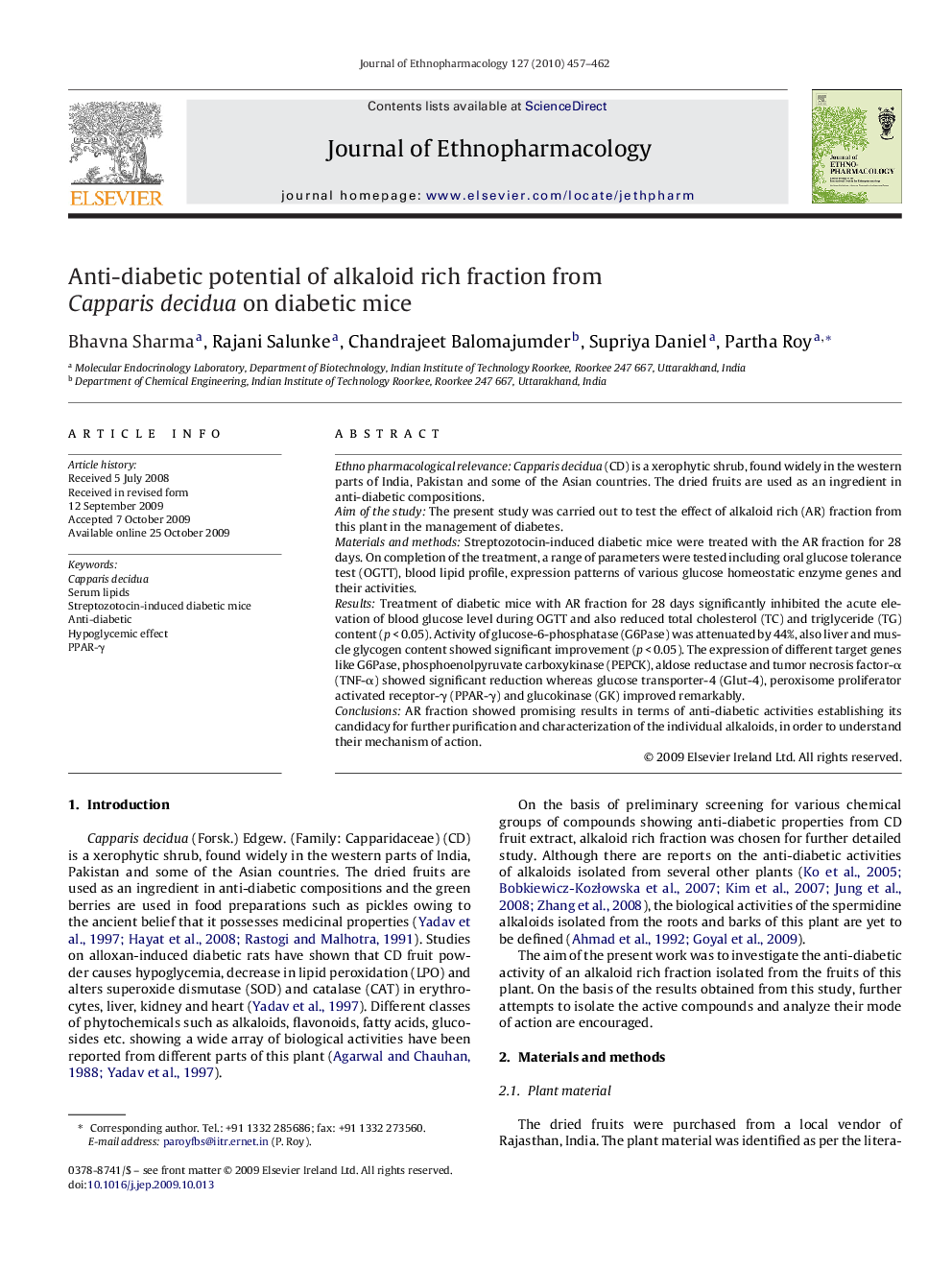| Article ID | Journal | Published Year | Pages | File Type |
|---|---|---|---|---|
| 2545916 | Journal of Ethnopharmacology | 2010 | 6 Pages |
Ethno pharmacological relevanceCapparis decidua (CD) is a xerophytic shrub, found widely in the western parts of India, Pakistan and some of the Asian countries. The dried fruits are used as an ingredient in anti-diabetic compositions.Aim of the studyThe present study was carried out to test the effect of alkaloid rich (AR) fraction from this plant in the management of diabetes.Materials and methodsStreptozotocin-induced diabetic mice were treated with the AR fraction for 28 days. On completion of the treatment, a range of parameters were tested including oral glucose tolerance test (OGTT), blood lipid profile, expression patterns of various glucose homeostatic enzyme genes and their activities.ResultsTreatment of diabetic mice with AR fraction for 28 days significantly inhibited the acute elevation of blood glucose level during OGTT and also reduced total cholesterol (TC) and triglyceride (TG) content (p < 0.05). Activity of glucose-6-phosphatase (G6Pase) was attenuated by 44%, also liver and muscle glycogen content showed significant improvement (p < 0.05). The expression of different target genes like G6Pase, phosphoenolpyruvate carboxykinase (PEPCK), aldose reductase and tumor necrosis factor-α (TNF-α) showed significant reduction whereas glucose transporter-4 (Glut-4), peroxisome proliferator activated receptor-γ (PPAR-γ) and glucokinase (GK) improved remarkably.ConclusionsAR fraction showed promising results in terms of anti-diabetic activities establishing its candidacy for further purification and characterization of the individual alkaloids, in order to understand their mechanism of action.
Graphical abstractAlkaloid rich fraction isolated from the fruits of Capparis decidua remarkably improved the hepatic and muscle glycogen content in diabetic rats.Figure optionsDownload full-size imageDownload as PowerPoint slide
